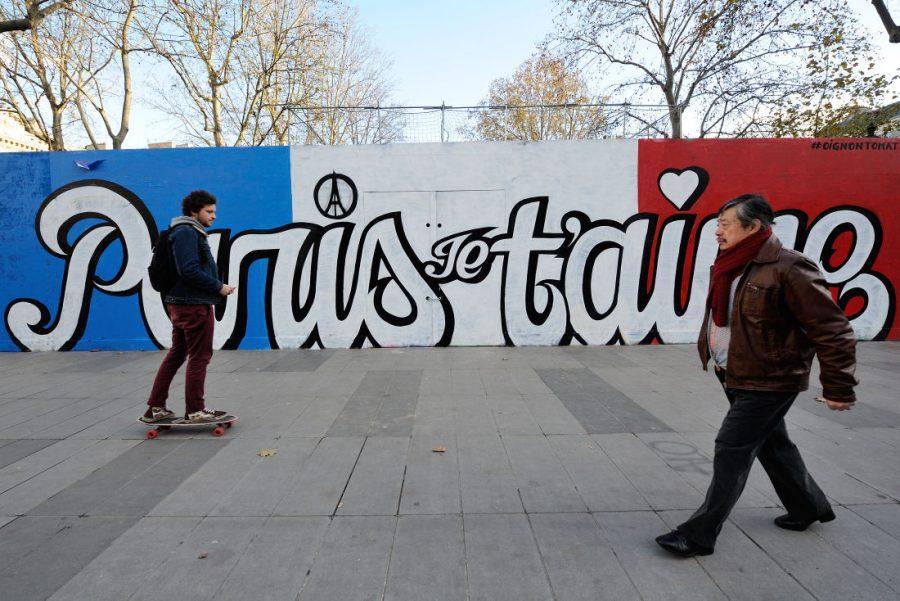NIU student tells of experience in Paris after attacks
December 3, 2015
NIU student Andrew Daw was enjoying the Paris nightlife with friends on Nov. 13 when gunshots rang out a couple streets over.
Daw, a senior French business translation major, didn’t hear the commotion from inside a taxi cab on the way to The Labo, a downtown Paris club. He instead received text messages from friends about what he as an American had considered a commonplace: a shooting. But as he arrived at the club, he had the feeling something much larger than a shooting was occurring.
“For me, the American news found out before I even knew what was happening,” Daw said as he recalled hearing about the attack at Bataclan that claimed 89 lives. “We were there a week prior to the shootings, so that was incredibly scary when I heard that because, you know, we were just there. … So that was very a little close to home.”
Daw would later find out he was in the midst of a city under siege by at least 11 terrorists, according to a BBC report. For three hours, terrorists fired upon patrons and detonated bombs in or outside of four restaurants, a music venue and a stadium – killing more than 120 people.
French President Francois Hollande said the attacks, claimed by terrorist group Islamic State of Iraq and Syria, was an “act of war,” according to a Nov. 14 statement.
Hollande immediately mobilized 1,500 soldiers in Paris and declared a state of emergency, an order that was extended to three months on Nov. 20. The French military retaliated against ISIS within 48 hours of the attack, destroying 35 targets in two training centers and four command centers, according to the French Ministry of Defense.
Those first few days were the hardest to go out, Daw said.
“Everyone was just so afraid to do anything,” he said. “They didn’t want to take the subway to work. They didn’t want to go out to dinner. It was very strange because the city is moving all the time, and … after, there was no one in public.”
France’s tourism industry — the largest in the world with 84.7 million tourists in 2014, according to French government data — took a hit after the attacks, but is slowly recovering. There were 27 percent more cancellations for flights to Paris from Nov. 14 to 21 than during the same time period last year, according to ForwardKeys, a travel-data analysis company.
Daw said he forced himself to go out after a week.
“I got on the train, and I went to a bar with some friends,” Daw said. “I was so uncomfortable the whole time, but I just thought, ‘You know what, I can’t let them win.’ … There’s always going to be someone who thinks what I’m doing is wrong or doesn’t agree with how I lead my life, but I can’t be afraid of that. I have to keep on going.
“There was a famous quote: ‘Même pas peur.’ It’s ‘Not even scared.’ And that really struck me because everyone was terrified, but we still had to keep going.”
Daw said he feels very lucky to not have known anyone injured or killed in the attacks.







